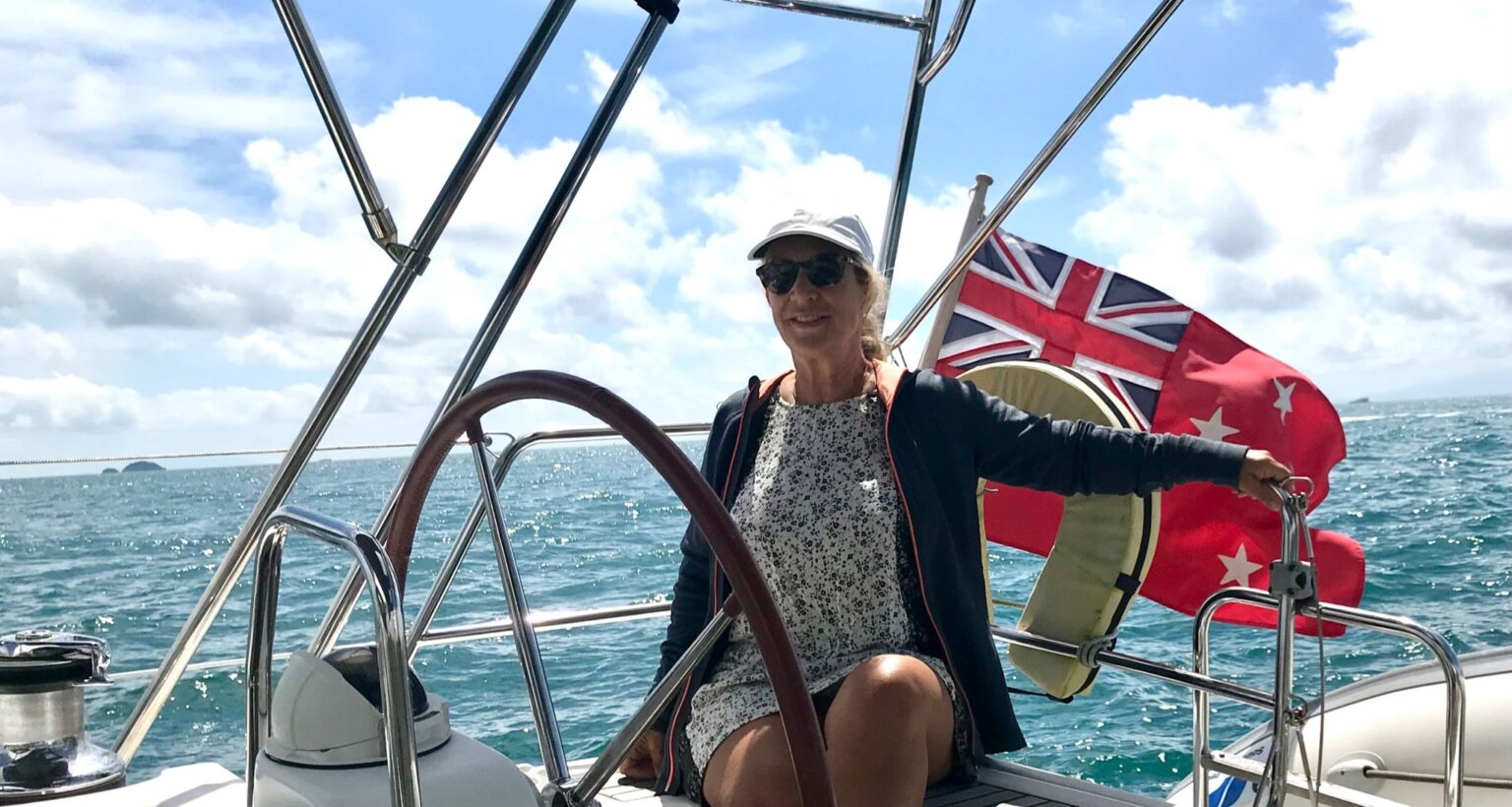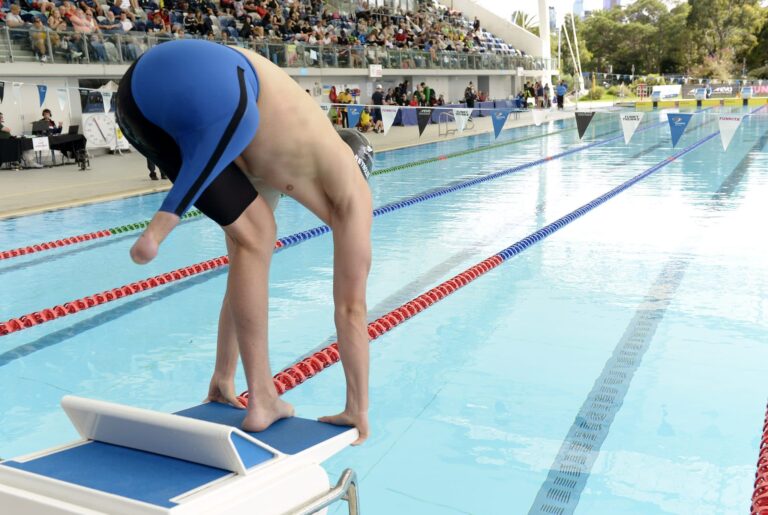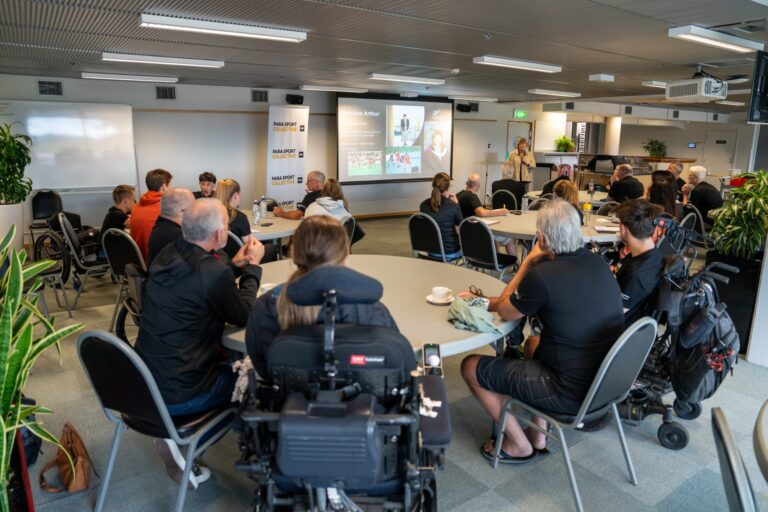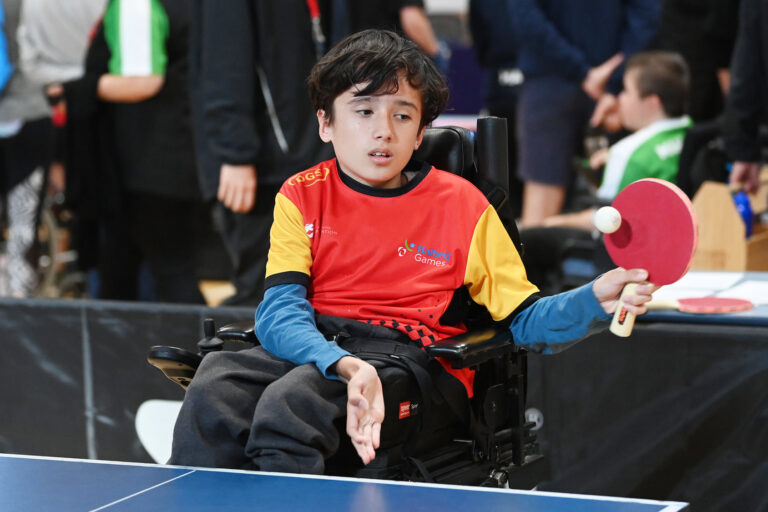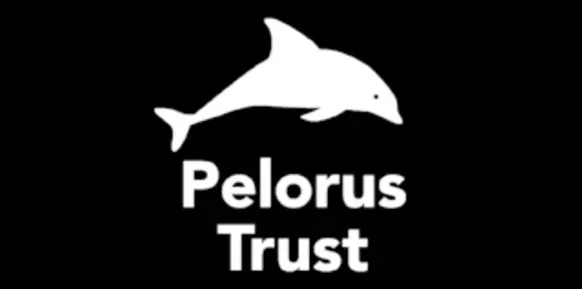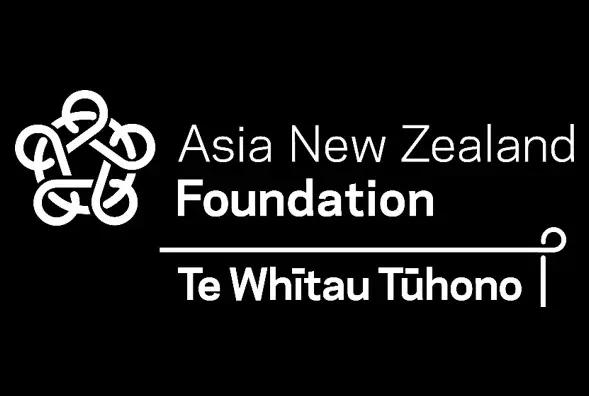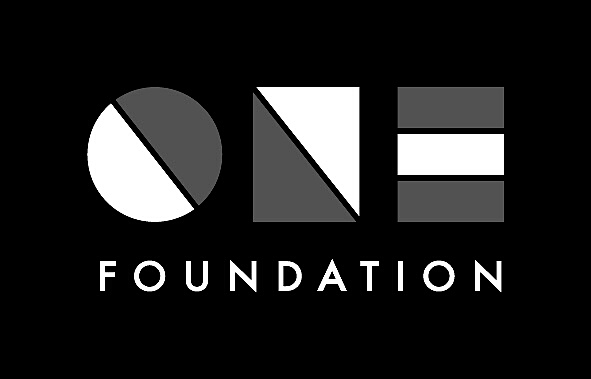Helen McKenzie is a Lead Classifier in Para sailing in New Zealand. Here, she is interviewed by Joshua McKenzie-Brown, who is a journalist at Attitude Pictures, a Para sailor, and Helen’s son.
What is classification?
We rely on classification to establish whether a person may compete in a para sport such as sailing by confirming that they have what we call an ‘eligible disability’ or ‘impairment’. The sailor must present a permanent eligible impairment resulting from a recognised underlying health condition and must meet minimum eligibility criteria in order to be allowed to compete. That’s part of the reason we like to undertake classification at local events, in order that a person getting into the sport or training hard to do well in sailing is confirmed as being eligible to compete. Then there are no surprises when they travel overseas to compete internationally. In NZ we use the international classification process for national and local events and that helps keep everything clear.
Classification is integral to the sport because it allows for fair and equitable competition. By grading the sailors into specific sport classes, their success is then determined by skill, tactics, mental focus, training and experience rather than physical fitness. Classification is sport specific and for sailing it is based on a functional anatomical assessment followed by an on water observation, where a sailor is put into a sport class 1-7, seven being minimum disability and one, for example, might be a high level quadriplegic .
The 1-7 levels means that in some combinations, crews of mixed classification can compete together and complement each other’s disability e.g., in a two-person or three-person yacht.
Why did you get into classification?
Through my background as a physiotherapist, I was initially introduced to the classification process at the Far East South Pacific Games in Malaysia (2006) when my son competed in a Hansa Liberty in the sport of Para Sailing. The Head Classifier, acknowledging my background, explained in detail the classification process as my son went through it for the first time ever.
This piqued my interest and through a chain of events, Yachting New Zealand supported me to go to a training course in Kinsale, Ireland that was held during the 2013 Para World Sailing Championships. There and at various Para World Sailing championships I have since attended: Halifax, Canada (2014), Melbourne, Australia (2015) and Medemblik, Netherlands (2016), I gained sufficient experience to qualify as an international classifier for Para Sailing. I have acted in this capacity at both the Para World Sailing Championships at Kiel, Germany, 2017 and Sheboygan, USA (2018).
Having previously worked as Divisional Manager for Blind Low Vision NZ, it was a natural progression to become involved in Blind sailing and I undertook classification in Helensburgh, Scotland for the World Blind Sailing Championships in 2018.
Tell us about your background
Well, I’m a sailor myself for a start. I began sailing a Laser when I was14 years old and when I turned 15 and got my driver’s license (back in the old days) I would trail the boat to nearby yacht clubs to compete in local races. I was pretty lightweight and as Lasers back then only came with a full rig I sailed two-up with a friend so that our combined weight would be the same as an average adult male. This didn’t necessarily work as I never made it to sailing rockstar status!
I continue sailing, competing in local weekend and Wednesday night races in a friend’s Salona 42-foot keelboat and cruising the Hauraki gulf in our 46 foot Beneteau keelboat, any chance I get. Next year we are planning to sail to Tonga or Fiji.
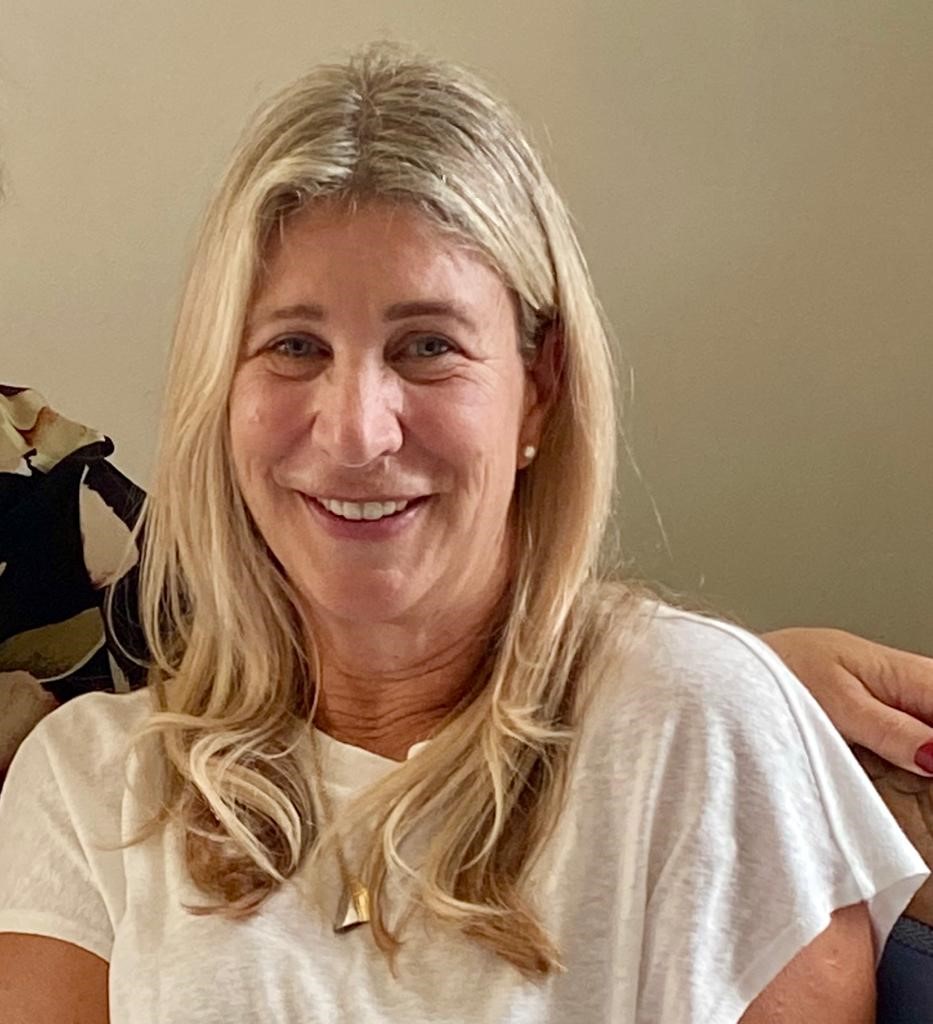
Do you feel that your work is important? Why?
Absolutely, I wouldn’t do it otherwise! We are able to ensure fair play in competition by using the international points system designed to smooth out the variables between different disabilities. Unlike some sports, all sailors compete together, the minimum disability against significant disability. We also are in a position to determine intentional misrepresentation which goes some way to ensuring a level playing field.
Mostly, I think my role is important because it contributes to the provision of a structure, whereby sailors of all types and levels of disabilities can take to the water and enjoy a truly great sport whilst competing at all levels.
What does the role involve? Talk us through your responsibilities as a classifier at a Para sport event
Meeting the sailors coming for their classification and making them feel at ease especially if they are not familiar with the process is a good starting point. Athletes are often nervous either about being evaluated or about the potential outcome which in the two-person (and previously three-person) boats can impact on their ability to compete.
For an international event there are two classifiers on any panel and four in total so any contentious or tricky components of the evaluation can be considered. There is an anatomical assessment where points reached determine the level an athlete is placed at i.e., 1-7 with 7 being minimum disability and appropriate for either of the single person boats.
There is also an on-water evaluation which takes place on the training day prior to the regatta starting. This usually reinforces the decision the panel has made rather than negatively impacts on it but is helpful to see how sailors may adapt to cover for their disability.
Prior to the regatta we will have posted a list of sailors classified under the current points system with their 1- 7 grade as Confirmed C (as in the case of a non-changing disability such as a missing limb) or Review (R) for conditions which may fluctuate.
It doesn’t just stop at classification though. We are a spare pair of hands on the water and we will often tow boats in, after a long tiring day on the water, or assist wherever we can from a humane perspective. It can be tough out there, given the variable weather conditions which require a lot of stamina from the sailors.
Were you given training specific to this position?
Yes, the process involves attending a specific training course usually held over a three-day period at one of the major Para sailing championships. There, one covers the theory and observes the sailors, both readying themselves and their boats for competition as well as out on the water. I was also fortunate enough to be able to reinforce this with attendance at a number of international regattas to observe the classification process through further support from Yachting New Zealand who are committed to inclusive sailing.
Any memorable moments from your involvement in sailing over the years?
Watching on from a spectator vessel as my son won a Para Sailing World Championship in Canada.
When is the next para sport event that you will be attending? Will you be classifying NZ athletes at future Paralympics?
I am hopeful I will be attending the Para World Sailing Championships in the Netherlands next year and perhaps another significant sailing event held in Europe. It’s very important to maintain experience levels and work with one’s international colleagues on a semi-regular basis to ensure these specific skills are kept up to speed.
Sadly, Para sailing is not included at the next Paralympic Games in Paris in 2024, but a lot of work has been undertaken by World Sailing and many others to ensure Para Sailing is increasingly accessible to a greater number of sailors from even more countries than have in the past participated. Fortunately, there is a strong bid to reinstate Para sailing for the LA28 Paralympic Games.
What would your advice be to young professionals considering stepping into the world of Para sport classification?
It is very rewarding, and an interesting application of the skill set you would need to have to be eligible for this role e.g., physio, occupational therapist or medical doctor.
It’s always great to see sailors with disabilities put aside any limitations that may impact on their daily life and just get out there, enjoying themselves whilst competing on the big blue sea.
How can I become a classifier?
If you are a medical practitioner (doctor, physiotherapist of occupational therapist) and you are interested in becoming a classifier, contact [email protected].
Paralympics New Zealand may be able to assist with classifier training expenses.

